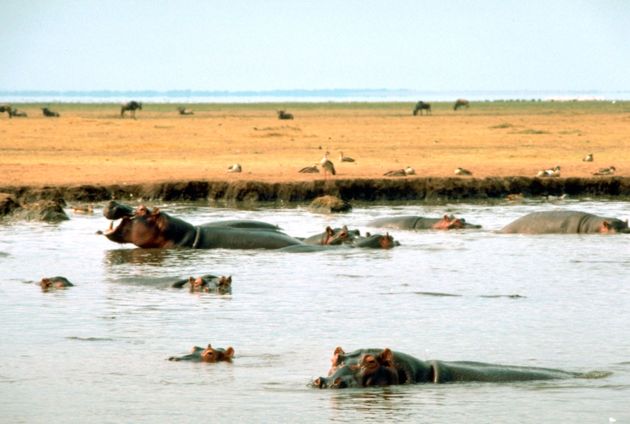Unlikely Cousins: Whales and Hippos

Get the world’s most fascinating discoveries delivered straight to your inbox.
You are now subscribed
Your newsletter sign-up was successful
Want to add more newsletters?

Delivered Daily
Daily Newsletter
Sign up for the latest discoveries, groundbreaking research and fascinating breakthroughs that impact you and the wider world direct to your inbox.

Once a week
Life's Little Mysteries
Feed your curiosity with an exclusive mystery every week, solved with science and delivered direct to your inbox before it's seen anywhere else.

Once a week
How It Works
Sign up to our free science & technology newsletter for your weekly fix of fascinating articles, quick quizzes, amazing images, and more

Delivered daily
Space.com Newsletter
Breaking space news, the latest updates on rocket launches, skywatching events and more!

Once a month
Watch This Space
Sign up to our monthly entertainment newsletter to keep up with all our coverage of the latest sci-fi and space movies, tv shows, games and books.

Once a week
Night Sky This Week
Discover this week's must-see night sky events, moon phases, and stunning astrophotos. Sign up for our skywatching newsletter and explore the universe with us!
Join the club
Get full access to premium articles, exclusive features and a growing list of member rewards.
If the idea of whales being mammals has always seemed a bit wild, then you'll probably be surprised to learn that the giant aquatic beasts are pretty closely related to the hippopotamus.
Scientists have been wrangling over these relations for centuries.
One theory had been that hippos were related to pigs. Yet mounting evidence suggested they are closer to whales. A new study concludes that a four-footed semi-aquatic mammal that thrived for some 40 million years was a common ancestor to both whales and hippos.
"The problem with hippos is, if you look at the general shape of the animal it could be related to horses, as the ancient Greeks thought, or pigs, as modern scientists thought, while molecular phylogeny shows a close relationship with whales," said Jean-Renaud Boisserie, a post-doctoral fellow at the University of California, Berkeley. "But cetaceans - whales, porpoises and dolphins - don't look anything like hippos."
To complicate matters, there is a 40-million-year gap between fossils of early cetaceans and early hippos.
Boisserie and colleagues in France say they've filled in the gap with fossils of a "water-loving animal" that evolved into two groups, early cetaceans and a group of four-legged animals called anthracotheres. The pig-like anthracotheres, which developed at least 37 distinct genera, died out less than 2.5 million years ago, leaving only one line: the hippopotamus.
The analysis puts whales within a large group of cloven-hoofed mammals called Artiodactyla. That makes them relatives of cows, pigs, sheep, antelopes, camels and giraffes, too.
Get the world’s most fascinating discoveries delivered straight to your inbox.
The idea of whales and hippos being related has gained steam in recent years. Boisserie's team analyzed new and previous hippo, whale and anthracothere fossils to pin down anthracotheres as the missing link between hippos and cetaceans, they say.
"Our study is the most complete to date, including lots of different taxa and a lot of new characteristics," Boisserie said. But leaving the case not quite shut, he added: "Our results are very robust and a good alternative to our findings is still to be formulated."
Robert is an independent health and science journalist and writer based in Phoenix, Arizona. He is a former editor-in-chief of Live Science with over 20 years of experience as a reporter and editor. He has worked on websites such as Space.com and Tom's Guide, and is a contributor on Medium, covering how we age and how to optimize the mind and body through time. He has a journalism degree from Humboldt State University in California.
 Live Science Plus
Live Science Plus











